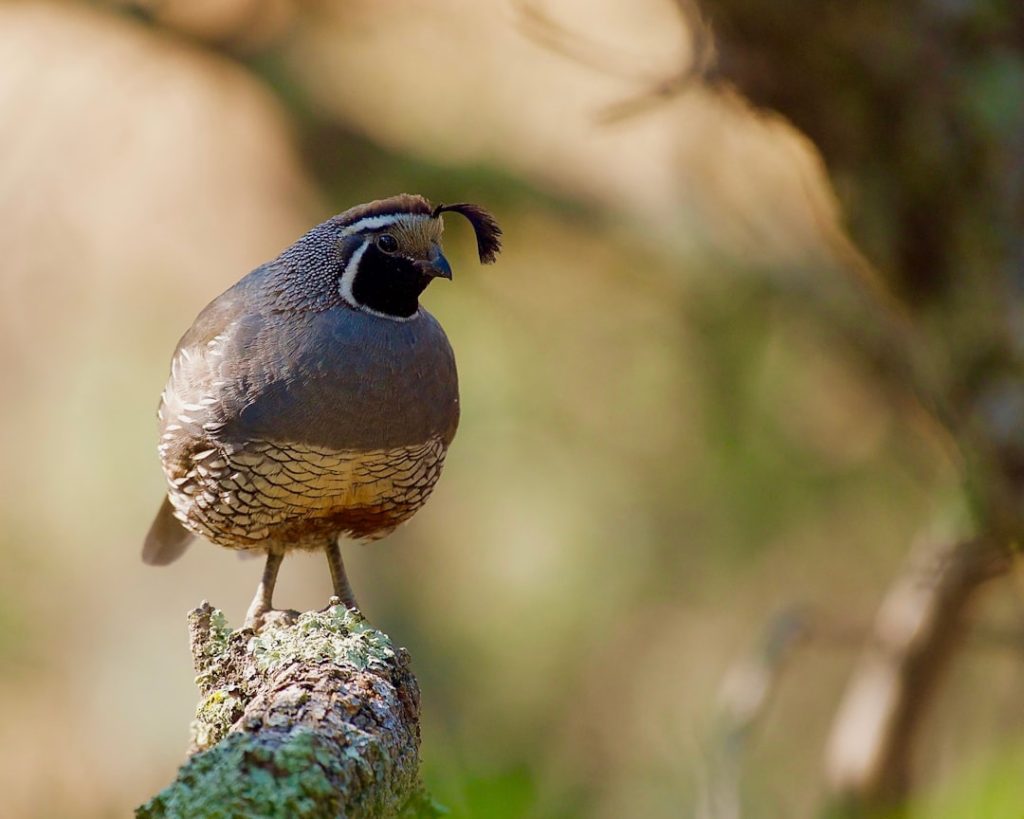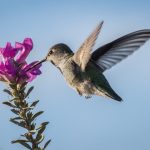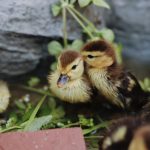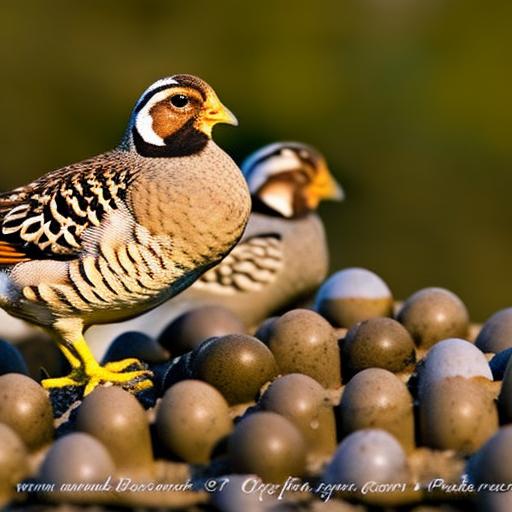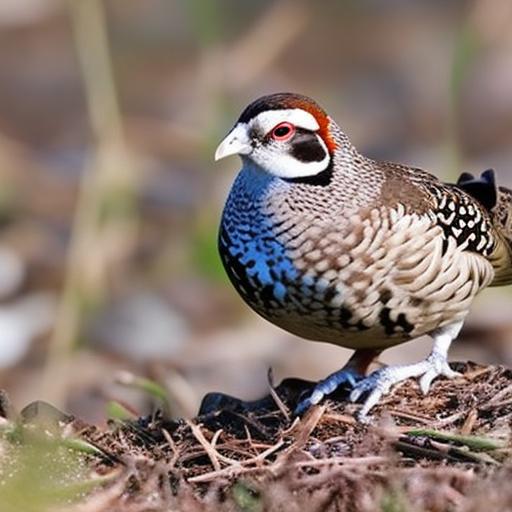Free range quail breeding involves raising quails in a natural and open environment, allowing them to roam and forage freely. This method of breeding is gaining popularity due to the increased demand for organic and free-range products. Free range quail breeding provides a more natural and stress-free environment for the birds, resulting in healthier and more flavorful meat and eggs. It also allows the quails to exhibit their natural behaviors, such as dust bathing, foraging for insects and plants, and socializing with other birds.
In free range quail breeding, it is important to provide the birds with ample space to roam and access to natural vegetation. This not only promotes their physical and mental well-being but also contributes to the nutritional quality of their meat and eggs. Additionally, free range quail breeding requires careful management to ensure the birds are protected from predators and environmental hazards. Overall, understanding the principles of free range quail breeding is essential for successfully raising healthy and productive quails in a natural environment.
Table of Contents
Key Takeaways
- Free range quail breeding requires providing a natural environment for the birds to thrive and reproduce.
- Select breeding stock with good genetics, health, and temperament to ensure successful breeding and healthy offspring.
- Create an ideal free range environment by providing ample space, natural vegetation, and protection from predators.
- Manage quail breeding and egg production by monitoring breeding pairs, collecting and storing eggs, and ensuring proper nutrition.
- Care for quail chicks and juveniles by providing warmth, proper nutrition, and protection from predators.
- Implement health and disease management practices to prevent and treat common ailments in free range quail breeding.
- Market and sell free range quail and eggs by highlighting the benefits of free range farming and the quality of the products.
Selecting the Right Quail Breeding Stock
Selecting the right quail breeding stock is crucial for successful free range quail breeding. When choosing breeding stock, it is important to select birds that are healthy, genetically diverse, and have desirable traits such as good egg production, strong foraging abilities, and resistance to common diseases. It is also important to consider the temperament of the birds, as aggressive or overly skittish quails may not thrive in a free range environment.
When selecting breeding stock for free range quail breeding, it is recommended to choose birds from reputable breeders or suppliers who prioritize the health and welfare of their birds. It is also important to consider the specific breed of quail that is best suited for free range environments, such as Coturnix quail, which are known for their adaptability and strong foraging instincts. Overall, selecting the right quail breeding stock is essential for establishing a healthy and productive flock in a free range setting.
Creating the Ideal Free Range Environment for Quail
Creating the ideal free range environment for quail involves providing the birds with access to natural vegetation, open space for foraging, and protection from predators and environmental hazards. It is important to ensure that the free range area is well-drained and offers a variety of plants, grasses, and insects for the quails to forage on. Providing ample space for the birds to roam and explore is also essential for promoting their physical and mental well-being.
In addition to natural vegetation and open space, it is important to provide shelter and protection for the quails in a free range environment. This can include providing secure coops or shelters for the birds to roost in at night, as well as implementing predator-proofing measures such as fencing and netting. Creating a safe and stimulating environment for free range quail breeding is essential for promoting the overall health and welfare of the birds.
Managing Quail Breeding and Egg Production
Managing quail breeding and egg production in a free range environment requires careful monitoring of the flock’s reproductive behavior, egg laying patterns, and overall health. It is important to provide the birds with a balanced diet, access to clean water, and adequate nesting areas to encourage consistent egg production. Additionally, regular health checks and parasite control measures are essential for maintaining the overall well-being of the flock.
In a free range setting, it is important to implement effective management practices to ensure optimal egg production and fertility. This can include monitoring the age and condition of the breeding stock, providing supplemental lighting during shorter daylight periods, and implementing proper egg collection and storage procedures. Overall, effective management of quail breeding and egg production is essential for maintaining a healthy and productive flock in a free range environment.
Caring for Quail Chicks and Juveniles
Caring for quail chicks and juveniles in a free range environment involves providing them with a safe and nurturing space to grow and develop. It is important to provide young quails with access to heat lamps or brooders to maintain their body temperature during the early stages of life. Additionally, providing a balanced diet rich in protein and essential nutrients is crucial for promoting healthy growth and development.
In a free range setting, it is important to monitor the behavior and health of quail chicks and juveniles closely to ensure they are thriving in their environment. This can include providing access to natural vegetation, shelter from predators, and protection from extreme weather conditions. Additionally, implementing proper socialization practices can help young quails develop strong social bonds within the flock. Overall, caring for quail chicks and juveniles in a free range environment requires attentive management and a focus on promoting their overall well-being.
Health and Disease Management in Free Range Quail Breeding
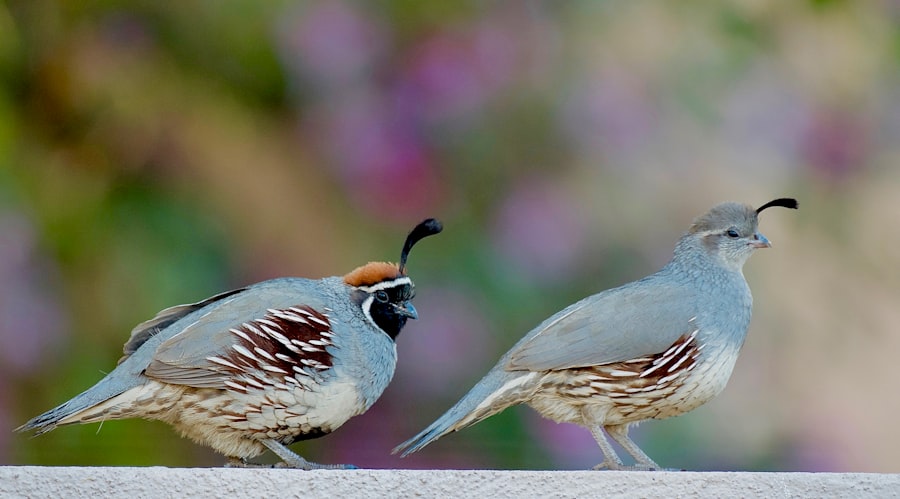
Maintaining the health and well-being of quails in a free range environment requires proactive disease management and preventative measures. It is important to implement biosecurity protocols to minimize the risk of disease transmission within the flock. This can include regular health checks, quarantine procedures for new birds, and proper sanitation practices within the free range area.
In addition to disease management, it is important to provide the quails with access to a balanced diet, clean water, and a low-stress environment to promote overall health and resilience. Monitoring the flock for signs of illness or distress is essential for early detection and treatment of potential health issues. Additionally, working with a veterinarian who specializes in poultry health can provide valuable guidance on disease prevention and treatment options. Overall, maintaining the health of quails in a free range environment requires proactive management and a focus on preventative care.
Marketing and Selling Free Range Quail and Eggs
Marketing and selling free range quail meat and eggs involves highlighting the unique qualities of products raised in a natural environment. Emphasizing the superior flavor, nutritional quality, and ethical production methods of free range quail products can help attract consumers who prioritize sustainable and humane food choices. Utilizing online platforms, farmers’ markets, and local retailers can help reach potential customers interested in purchasing free range quail products.
When marketing free range quail products, it is important to communicate the benefits of supporting small-scale producers who prioritize animal welfare and environmental sustainability. This can include sharing information about the specific practices used in free range quail breeding, as well as highlighting the positive impact of supporting local food systems. Additionally, offering educational opportunities such as farm tours or cooking demonstrations can help engage consumers and build loyalty to the brand. Overall, marketing and selling free range quail meat and eggs requires effective communication of the unique value proposition of products raised in a natural environment.
In conclusion, free range quail breeding offers a sustainable and ethical approach to raising quails while producing high-quality meat and eggs. Understanding the principles of free range quail breeding, selecting the right breeding stock, creating an ideal environment, managing breeding and egg production, caring for chicks and juveniles, maintaining health, and effectively marketing products are all essential components of successful free range quail breeding. By prioritizing animal welfare, environmental sustainability, and product quality, producers can meet the growing demand for organic and free-range quail products while contributing to a more ethical food system.
If you’re interested in free range quail breeding, you may also want to check out this informative article on building an A-frame chicken coop. Creating a suitable environment for your quail is essential for successful breeding, and understanding the principles of coop design can be beneficial.
FAQs
What is free range quail breeding?
Free range quail breeding refers to the practice of allowing quail to roam and forage freely in a natural environment, as opposed to being confined to cages or enclosures. This method of breeding allows quail to exhibit natural behaviors and can result in healthier and more flavorful meat and eggs.
What are the benefits of free range quail breeding?
Free range quail breeding can result in healthier and more flavorful meat and eggs due to the quail’s natural diet and increased exercise. It also allows the quail to exhibit natural behaviors, which can lead to better overall welfare.
What do free range quail need to thrive?
Free range quail need access to a natural environment with plenty of space to roam and forage, as well as protection from predators. They also require access to clean water, shelter, and suitable nesting areas.
What are the challenges of free range quail breeding?
One of the main challenges of free range quail breeding is protecting the quail from predators such as foxes, birds of prey, and other animals. Additionally, ensuring that the quail have access to suitable food and water sources can be a challenge in some environments.
Is free range quail breeding more sustainable than conventional methods?
Free range quail breeding can be more sustainable than conventional methods, as it allows the quail to forage for their own food and reduces the need for artificial inputs such as feed and medication. Additionally, it can result in a more natural and healthy product for consumers.
Meet Walter, the feathered-friend fanatic of Florida! Nestled in the sunshine state, Walter struts through life with his feathered companions, clucking his way to happiness. With a coop that’s fancier than a five-star hotel, he’s the Don Juan of the chicken world. When he’s not teaching his hens to do the cha-cha, you’ll find him in a heated debate with his prized rooster, Sir Clucks-a-Lot. Walter’s poultry passion is no yolk; he’s the sunny-side-up guy you never knew you needed in your flock of friends!

